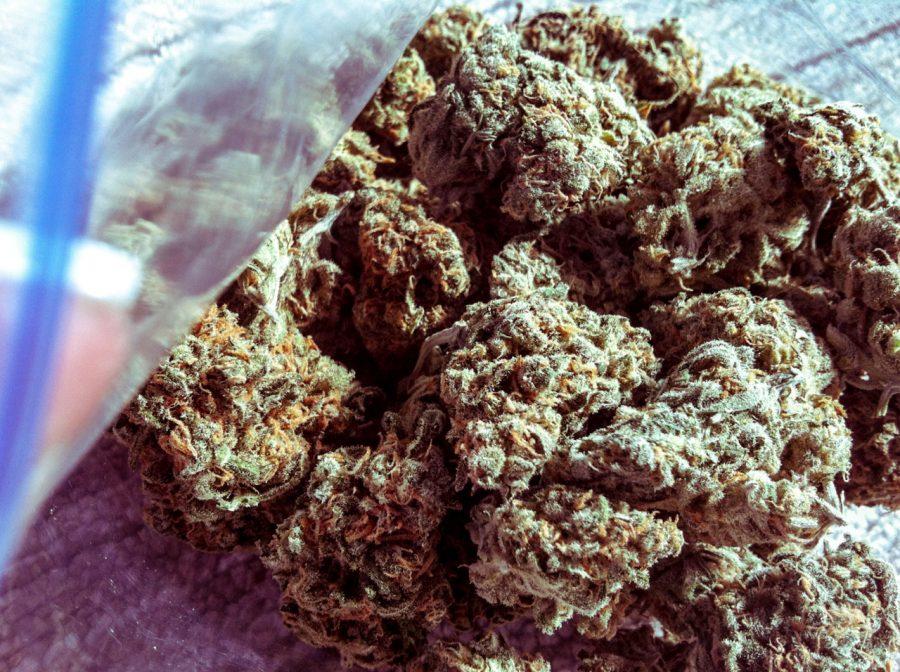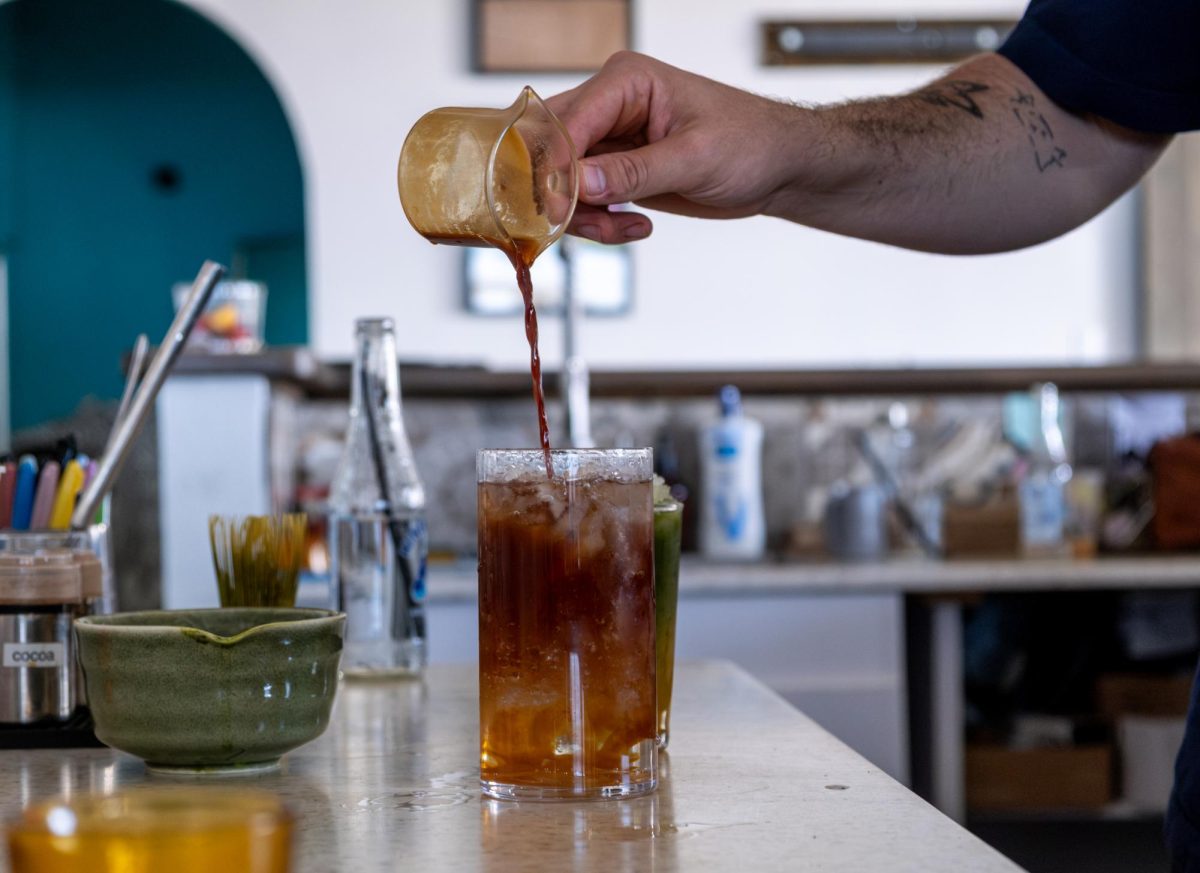A bill currently being introduced by Representative Joe Moody of El Paso, House Bill 81, would reduce marijuana possession up to one ounce to a civil penalty—a fine of up to $250 and court-ordered community service or drug education.
Moody’s stance is that too many young people are going to jail for minor possession, while the state is spending too much tax money on court and jail time for simple possession of marijuana.
“There’s nothing funny about college kids going to jail for something so minor, and nothing worth smiling about when we spend well over $1 billion dollars every biennium arresting and prosecuting those kids,” Moody said in a recent editorial in the El Paso Times. “Even as we can’t fully fund our schools or fix our roads.”
Moody has the support of several other representatives, some from across the aisle, as well as several law enforcement organizations. The problem, however, may be gaining a signature if the bill reaches the top level of the state house.
When the Compassionate Use Act originally passed, Governor Greg Abbott made sure to state that he would never sign a bill to legalize marijuana for recreational or medical purposes.
All that remains to be seen is if Abbott is willing to sign a bill that will not technically legalize marijuana.
In mid-2015, Governor Greg Abbott signed a bill into law intended to allow epilepsy patients access to low-THC cannabis oil. THC, or tetrahydrocannabinol, is the chemical in marijuana which produces the high for users of the drug.
Cannabis oil, commonly referred to as CBD oil, has been shown in studies to help with numerous medical conditions, from PTSD to migraines to preventing epileptic seizures.
In this case, the evidence was strong enough for Abbott to legalize the marijuana derivative.
However, proponents of CBD legislation said that Texas stopped short of helping anyone with Senate Bill 339, also known as the Texas Compassionate Use Act.
“On a certain level, the legislature should be commended for acknowledging the medical value of marijuana, and it is a historic vote in that sense,” said Heather Fazio, the political director for the Texas Marijuana Policy Project, in an interview with CBS News. “Lawmakers missed several opportunities to amend the bill in ways that could have provided real relief to countless Texans. Not a single patient will be helped by this legislation.”
The bill requires doctor’s to prescribe medical marijuana products to patients, which would place them in violation of federal law, causing them to lose their medical license. The bill also does not address any other medical conditions besides epilepsy.
However, the law might have opened the eyes of local proprietors to the fact that there is a need in the community for CBD oil sales without a prescription. The bill helped to set the limit of THC in medical CBD at 0.5 percent while setting the limit of commercial CBD oil THC levels at 0.02 percent.
Having a set limit has allowed local stores to begin selling CBD oil without prescriptions.
One such store is Smoker’s Paradise, located at 3233 Mesa St. Dante Hamel, the manager, said that customer testimonials alone have him convinced of CBD’s effectiveness.
“A gentleman has arthritis in his knuckles and joints in his fingers. He gets a little swelled up and stuff. He would rub the (CBD) salve on his hands and 10 to 15 minutes later he would get more flexibility and mobility in his fingers and just be like, ‘this stuff works, oh my god,’” Hamel said. “It’s great to see the surprise on people’s faces when they see the power of CBD and that it’s all natural and that there’s nothing synthetic about it.”
Other testimonials, according to Hamel, calm PTSD symptoms, headaches and relieve anxiety.
Hamel said that his store has seen CBD sales rise consistently and now one-third to one-half of e-cigarette/vaporizer sales are CBD oil. The store carries CBD e-liquid for vaporizers, tincture to apply to food or drink or under the tongue, salve for the body and inhalants.
In states where medical marijuana is fully legalized, a dramatic decrease in the use of prescription medicines has been seen as consumers begin to switch to more natural remedies.
In a 2016 study published in the journal Health Affairs, researchers from the University of Georgia showed that in the 17 states with a medical marijuana law on the books, prescriptions for antidepressants, seizure medications, anti-nausea medicines and anti-anxiety medicines fell drastically in a three-year span (2010-2013).
According to the American Society of Addiction Medicine, “drug overdose is the leading cause of accidental death in the United States, with 52,404 lethal drug overdoses in 2015.” The ASAM says that opioid addiction is the leading factor in this outbreak of drug overdoses with 20,101 overdose deaths being related to prescription painkillers.
In 2012, 259 million prescriptions for opioids were written in the US, according to the ASAM. This would be enough to give every “adult their own bottle of pills,” stated the ASAM.
Anti-drug war activist—and retired police officer—Howard Wooldridge told the Republic Report in 2012 that his biggest competitor on Capitol Hill in lobbying politicians to legalize marijuana was Pharmaceutical Research and Manufacturers of America (PhRMA).
“Marijuana’s an excellent medicine for many things, taking the place of everything from Advil to Vicodin and other expensive pills,” said Wooldridge in a 2012 interview at the Conservative Party Annual Convention.
PhRMA spent $19.7 million on lobbying against the legalization of both recreational and medical marijuana in 2016, according to the Senate Office of Public Records.
In a recent press conference, the Trump administration’s press secretary Sean Spicer pointed out the opioid addiction problem in America.
“When you see something like the opioid addiction crisis blossoming in so many states around this country, the last thing we should be doing is encouraging people,” Spicer said. “There’s a federal law that we need to abide by when it comes to recreational marijuana and other drugs of that nature.”
Spicer’s words were the first from the new administration as far as any stance on medical or recreational marijuana. For most, it signals an intent to strictly enforce national laws referencing marijuana, even in state’s that have legalized marijuana in one form or another.
The executive director of the National Cannabis Industry Association is concerned about Spicer’s characterization of marijuana.
“Science has discredited the idea that marijuana serves as any kind of gateway drug, and the addiction and death rates associated with opioids simply do not occur in any way with cannabis,” said Smith.
However, Spicer did state that the president does see some benefit to medical marijuana.
“The president understands the pain and suffering that many people go through, who are facing especially terminal diseases, and the comfort that some of these drugs, including medical marijuana, can bring to them,” Spicer said.
With the Drug Enforcement Agency still classifying marijuana as a Schedule I drug—the same as heroin, cocaine and methamphetamine—scientists are unable to fully explore the medical properties of marijuana in the treatment of diseases.









